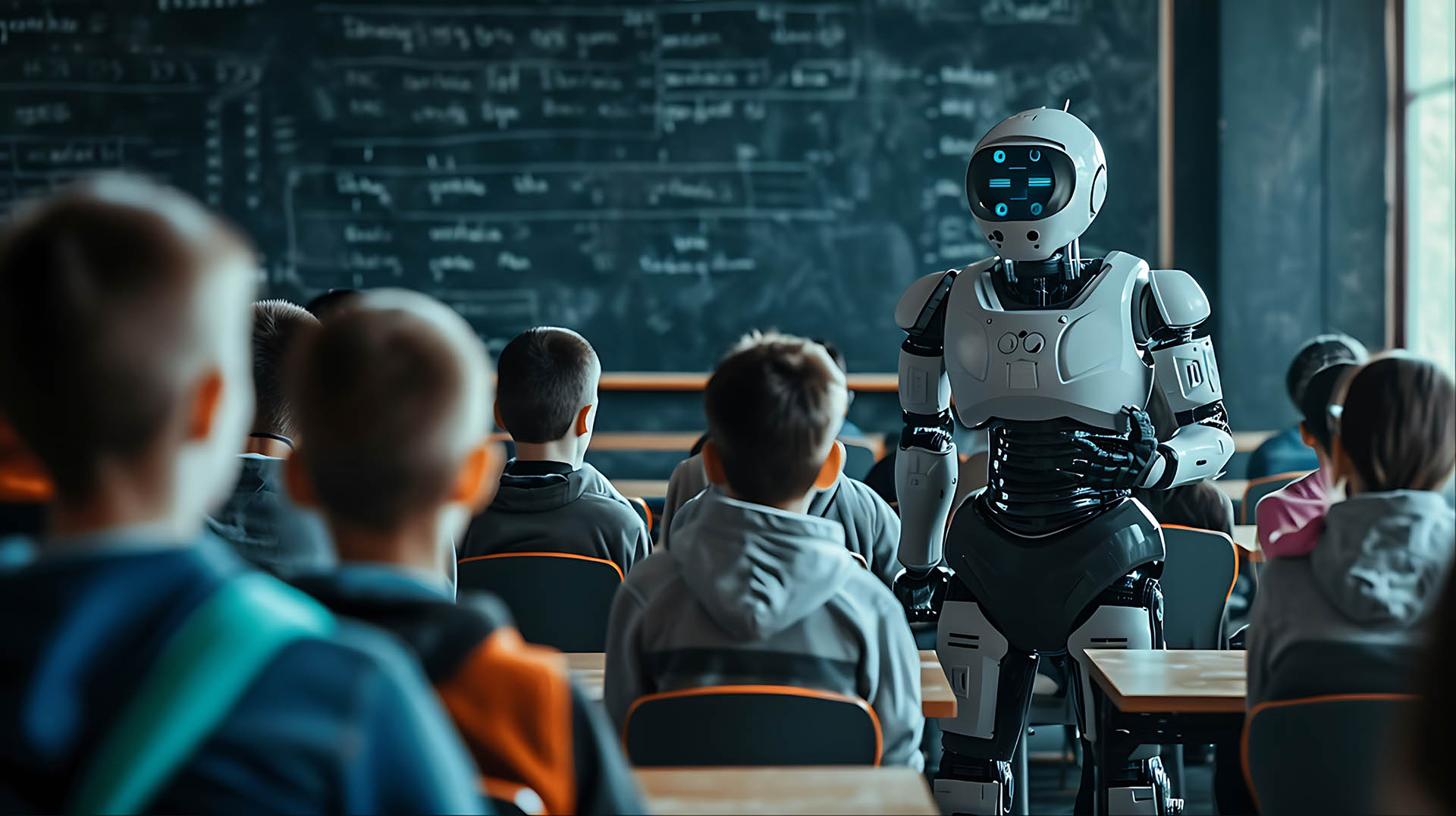Let’s talk about robots! Some research has investigated the potential of robot teachers. Yes, that’s right: Robot teachers.
Now, you are either rolling your eyes or feeling a little anxious, but with the advancement of AI, it’s a topic that we have to take seriously.
Before we get carried away, let’s look at the research in more detail.
Are robot teachers realistic?
Before the explosion of AI worldwide, researchers had already investigated the idea of robot teachers. The article in 2018 by Edwards & Cheok titled ‘Why not robot teachers: Artificial intelligence for addressing teacher shortage’ examined the economic benefits of robot teachers in the classroom.
There is a global shortage of teachers, and teacher recruitment is becoming increasingly difficult. Interest from graduates is declining due to the well-publicised teacher workload, stresses and poor pay compared to other graduate professions.
This research examined the idea that AI robots could replace some classroom teachers, thereby filling the gap. It would certainly provide an alternative, but could an AI robot really perform like a human equivalent?
Are there benefits to robot teachers?
The teacher shortage crisis threatens successful education, and it’s evident that traditional recruitment is not keeping pace with increasing student numbers.
AI robots would not suffer from workload fatigue or stress. They would perform consistently and could improve as technology allows.
Indeed, robots could be seen as a solution to many of the issues in teaching, such as job satisfaction, increasing workload and the time and money required for CPD. They could possibly fill the gap in STEM subjects where the recruitment crisis is more evident.
Before you combust at the idea of robot teachers replacing you in the classroom, let’s consider the disadvantages.
Why Human Teachers are Irreplaceable
The soft skills would be hard to replicate with robot teachers. Although AI is increasingly developing its ability to mimic emotional intelligence, it’s hard to see how it can replace the understanding of a human teacher when a student needs support and individual guidance.
Dealing with behavioural challenges requires an innovative and subtle understanding of the reasons behind the disruptions, and this would be hard for a robot to simulate.
Teaching is so much more than imparting information and assessing learning. The idea of robot teachers raises far more questions than it offers solutions.
The Future of AI Teacher Robots
Any future robot development for use in education would need to focus on some very specific capabilities.
Along with the ability to instruct, robot teachers would need good social interaction and the ability to engage on an emotional level.
Additionally, robot teachers must demonstrate that they can manage classroom behaviour, follow safeguarding procedures, and deliver a high-standard curriculum.
Ultimately, the idea will not disappear, and robots will likely be a focus as AI develops.
According to the Bejing Review, China produced 430,000 industrial robots in 2023 and the crossover to different sectors will follow.
It is time, perhaps, for the teaching profession to analyse and reflect on how Robot teachers could enhance education and what ethical questions this raises.



